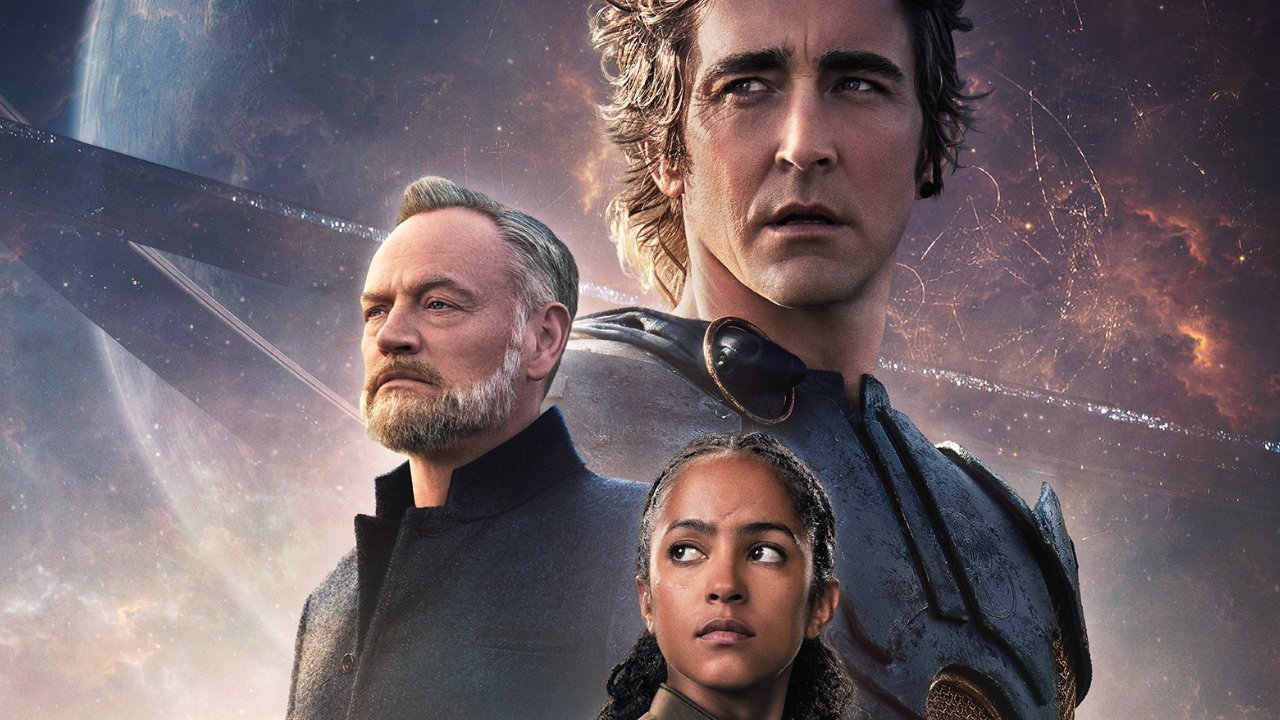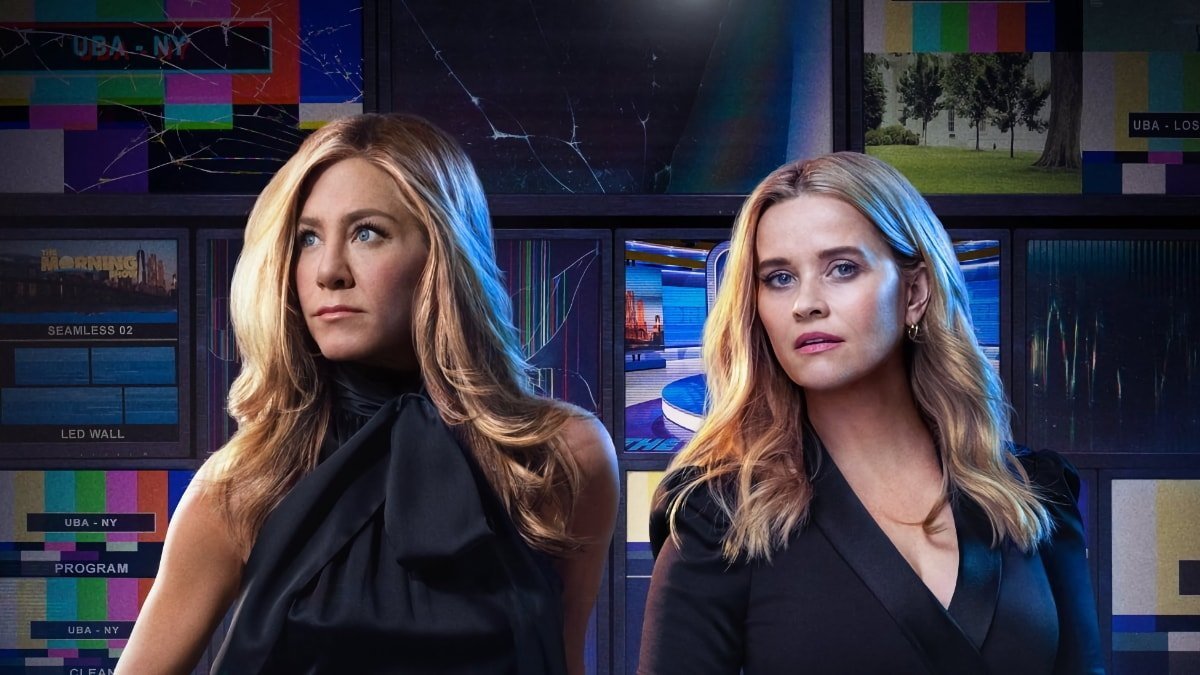Party's over: Apple tries to shrink costs of Apple TV+ productions
Billions have been spent on Apple TV+ original TV shows and movies, but now there is more pressure to control how the massive budgets are spent on productions.

Foundation for Apple TV+ had a budget of $5M per episode
Like other major streaming services, Apple has spent a lot of money on original programming. Now, it wants to try to be more thoughtful with its expenditure on video content.
According to sources of Bloomberg, Apple SVP of Services Eddy Cue has been holding budgetary meetings with studio heads Zack Van Amburg and Jamie Erlicht. After allegedly spending more than $20 billion on productions so far, Cue supposedly wants to refine how the money is spent.
Apple supposedly has the reputation as the "biggest spender in town," but Van Amburg and Erlicht have allegedly told creative partners that will change.
High spend, little return
The company has a reputation for spending a lot of money on the content for Apple TV+. This included $500 million in total on movies from major directors Martin Scorsese, Ridley Scott, and Matthew Vaughn.
On the TV side, this has manifested in high-budget programming, such as an alleged $250 million on "Masters of the Air." In February, news of budgetary cuts surrounding "Foundation" surfaced, with the show apparently costing Apple $5 million per episode or $50 million per season.
"The Morning Show" had originally paid stars Reese Witherspoon and Jennifer Aniston more than $1 million per episode in the first season. For the fourth season, they are expected to earn double, with Apple spending more than $50 million on the cast alone.

The Morning Show is costing Apple TV+ more than ever to produce
However, all this spending isn't met by revenue coming the other way. At the box office, the movies failed to gain much traction, and seemingly only "Killers of the Flower Moon" managed to gain an audience in streaming.
Similarly, despite the cost of "Masters of the Air," Nielsen's rankings revealed it failed to get as much of a U.S. viewership as the Japanese-language Netflix show "House of Ninjas."
Overall, it is claimed that Apple TV+ has a 0.2% share of overall U.S. TV viewing. Apple's monthly viewership is supposedly less than Netflix's daily viewership.
A plan in action
To try and reverse the situation, or at least to reduce how much this impacts Apple's bottom line, Apple TV+'s leadership is making some changes to how it funds projects.
For a start, there is the intention to pay less upfront for the shows it commissions. The idea is that shows and films that go over budget will be shouldered more by third-party production companies in the future.
According to some report sources, Apple has also decided against buying shows that it would've agreed to a few years ago. It's also ordering fewer straight-to-series projects.
Over the years, it has also been quicker to cancel shows that fail to bring an audience. In 2021, only 22% of shows were allowed to reach a third season, while 43% did in 2020.
There is also talk of Apple licensing content for its service. Apple has previously licensed classic movies and is in talks to do so again, but the discussions could indicate a wider strategy is in play.
An absorbable issue
The requests to cut costs are ones Apple would be expected to make, considering they will typically increase over time unless addressed. But at the same time, Apple is in a position where it doesn't necessarily hurt the company as much as others.
Other streaming services have cut costs in various ways, including letting go of staff and curtailing budgets. However, Apple's response to the problem is somewhat more lenient in that it can somewhat justify the outlay as a small drop in a $3 trillion bucket.
The consistently high number of awards and nominations it has received for its shows and films, as well as the critical acclaim, has allowed Apple to cultivate an appearance of quality for its shows. Despite that appearance, it hasn't had big returns at the box office or viewership numbers.
Read on AppleInsider

Comments
Maybe try to address why they're not successfully reaching a wider audience before cutting their legs off below the knee...
Add to that, series and films that are here today and gone tomorrow and you also have subscriber stress.
I never watch regular TV unless it is a sporting event because of the unrelenting stream of ads which cut in, mid-dialog and overlay ads for upcoming shows.
Now that is appearing (to a less invasive degree) on subscription services but it is only a question of time until it gets worse.
'Free' YouTube is basically unusable now.
I had the Apple TV+ trial and hardly watched anything so I didn't renew.
It won't be long before we see convergence to reduce the number of options.
At least original content has a long term value for the platforms.
And yes, shows getting cancelled simply because they didn't get off to a great start is a huge turn off. Even if they were critically acclaimed.
Back in the day, some of the greatest series got off to a bad start but grew over time.
You might be an outlier, but you're certainly not alone. I am currently watching Smallville, which I only did for the first season when it was broadcast, because I knew it had a satisfying ending. Breaking Bad was another one. The Fallout series is another one that I probably won't watch any more of until it ends, and then only if it ends well. There's too many cancelled shows to waste my time watching an incomplete story.
Because it's terrible. It's every bad cliche of the last 70 years of WWII filmmaking stuffed into a single show.
How did they not realize this was going off the rails from the start? "I know what we need, yet another movie about WWII bombers that's just like all the other ones!"
and kills the ones that may be great story telling, but not a lot of flash and glitz. They end up keeping shows that really take liberties on story plots, proving we as a society are getting dumber if the show keeps getting renewed.
I think a lot of it has to do with the old “Paradox of Choice” conundrum where if you have so many choices you end up not watching anything at all consistently. Plus, living in a northern state, I watch a lot more in the winter than I do in the summer. One thing I do find frustrating is that you never know when the next season is going to drop. Maybe others have figured it out but I haven’t.
Personally, I think Apple has done better than most in this regard, but at the same time, recent history shows otherwise.
If I can no longer trust that Apple won't finish out their series, I have no reason to watch and get "invested." Constellation certainly wasn't great, but again, we never would have started watching it knowing it was going to be discontinued. If there was some sort of conclusion on the docket, I'd be fine with it - even if it wasn't somehow one of the greatest conclusions to a series ever...
With all the news about budgets, it's clear that Foundation certainly has the potential to REALLY upset me in that regard.
Also, since people have mentioned being "outliers," I'll just add that I'm also eagerly awaiting a conclusion to Invasion.
Apple should figure out how to contain costs but not cancel shows prematurely. It can take several seasons to really build a proper franchise.
Apple should consider focusing less on star power and instead cultivate the next generation of directors and actors the way HBO did in it's best days.
I could care less if Reese Witherspoon or Jennifer Aniston show up in a series. It's the plot and production that matter. Less (expensive) stars and more investment in stories that can be told over many seasons is where Apple can shine. Especially in SciFi/Fantasy.
on the series issue, it can be solved by a story from the start being built to only have one series. One.
K-dramas do this successfully. Stories are mostly eight, 12 or 16 episodes. The ones that go longer can get tedious. And multi series stories are not the norm.
A greater variety of stories, focussed on the story, rather than trying to milk existing shows to death. Apple TV+ does not have the depth of content to keep adding series to already existing shows. It needs more stories.
Oh, and if based on a book. Respect the source. No additional preaching inconsistent with the story. Look a the failure of The Willow series on Disney, or prime LOTR.
The production cost for the original Lord of the Rings trilogy was under $300m total and made around $3b in theaters:
https://screenrant.com/all-lord-rings-hobbit-middle-earth-movies-ranked-budget-highest-lowest/
Harry Potter movies were around $100-200m each, total budget $1.7b and made $9.5b in theaters:
https://screenrant.com/harry-potter-movies-ranked-by-budget/
Here's a list of movie budgets, most are below $200m:
https://www.the-numbers.com/movie/budgets/all
$20b is enough for 100 blockbuster quality movies, over 60 Lord of the Rings trilogies.
The streaming services are clearly missing good talent scouts and are throwing money at people hoping for a diamond in the rough. There needs to be a better process for weeding out bad productions early.
AI can help with this, someone can pitch a script and an AI can generate a movie with a cast to see what the movie could look like in a rough form with voice simulation. Then they can make a better decision on whether to greenlight it.
Some decisions seem more obvious. Productions like The Morning Show have such a weak overall structure. The audience score for season 3 is 12%:
https://www.rottentomatoes.com/tv/the_morning_show/s03
The shows with the good ratings are the high quality cinema productions:
https://collider.com/best-apple-tv-original-movies-ranked-rotten-tomatoes/
https://www.rottentomatoes.com/m/wolfwalkers
https://www.rottentomatoes.com/m/tetris
https://www.rottentomatoes.com/m/killers_of_the_flower_moon
https://www.rottentomatoes.com/m/the_banker_2020
https://www.rottentomatoes.com/m/greyhound
More cinema, less low quality TV would give a better return for their investment. This comes from better writers and good source material:
https://www.shortlist.com/lists/40-best-film-adaptations
https://en.wikipedia.org/wiki/List_of_best-selling_books
Apple is adapting some best-selling books and these get good reviews:
https://ebookfriendly.com/top-100-kindle-books-all-time/
https://www.rottentomatoes.com/tv/defending_jacob
the trouble with the morning show is that it was at best a one series show. Now it is just boring soap with expensive actors.
That list of kindle books is interesting , but nearly all have already been made into movies or shows.
perhaps Follet’s The Pillars of the Earth would make a great short series and hasn’t been done. That said, I don’t expect it would be quite the right thing for the people picking ATV+ content. Too religious and the pitch might be tricky.
Personally, I would like to have a limited run Hornblower series. Say three or four episodes per book, like the Ion Griffud version a few years ago, but with a budget.
and with regard to SF, how about Henlien’s time for the stars? Classic Amazing Stories type Sci Fi. Or Starship Troopers a lot more faithful to the book.
On nasty aliens, how about Legacy of Heorot, by Larry Niven, Jerry Pournelle and Steven Barnes? About an unintended consequence of interfering in a strange environment. This could be made without much outlay.
take some risks but with low budgets and say 3 to 4 episodes miniseries they can drop in one per month but really favouring the craft not the names.
Seems like a scrappy end note to an otherwise good article
Gotta say I would tend to agree. Sometimes its just thrown in there randomly and until that point the show/movie was a great family event. Ted Lasso didn't need all that swearing, it was such a great show with great story, comedy and actors. Some of the messages would have been great for kids to learn and understand.